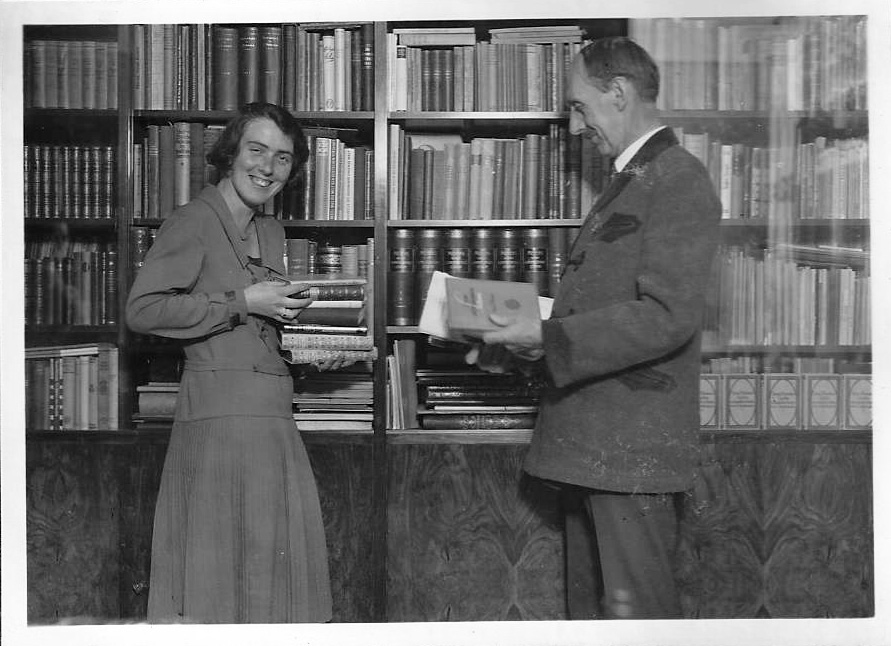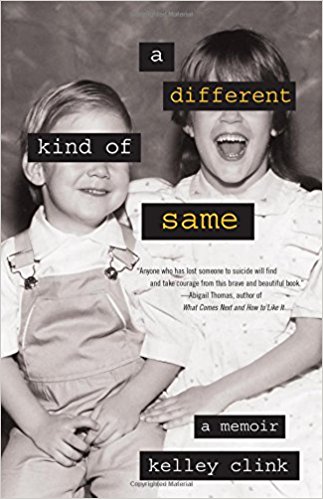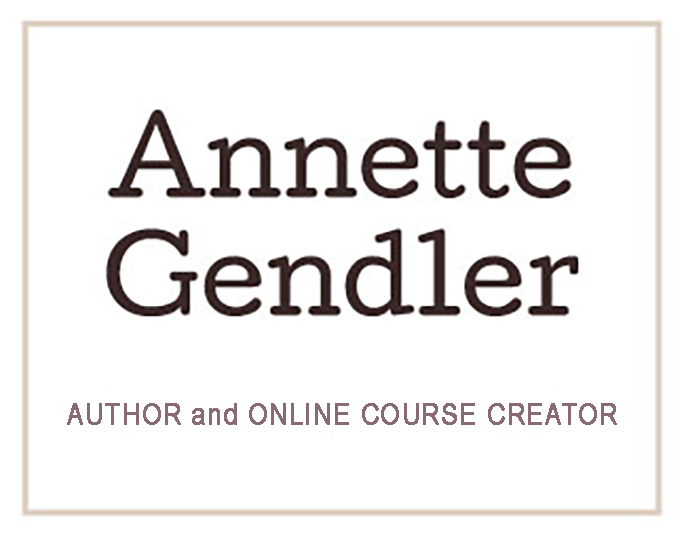
My great-grandfather with my grandmother, Reichenberg, 1932
“A few days before Kristallnacht, on the evening of Thursday, November 3, 1938, my great-grandfather walked up the hill to the cemetery by the crematorium in Reichenberg, found the family grave, and shot himself.”
Jumping Over Shadows, p. 66
I was going to write about something completely different today, but then I leafed through yesterday’s Wall Street Journal while having lunch and happened upon Karl Rove’s stunning article on his mother’s suicide: My Mother’s Suicide Was Preventable (if you don’t subscribe to the WSJ, see the article here)
 I’ve always admired Karl Rove for his political acumen but this piece was personal, highly personal. And it got me thinking about two of my students who have had to contend with a sibling’s suicide. My former student Kelley Clink wrote a beautiful memoir about this, A Different Kind of Same, which, in my reading, ended up more a celebration of siblinghood than anything else.
I’ve always admired Karl Rove for his political acumen but this piece was personal, highly personal. And it got me thinking about two of my students who have had to contend with a sibling’s suicide. My former student Kelley Clink wrote a beautiful memoir about this, A Different Kind of Same, which, in my reading, ended up more a celebration of siblinghood than anything else.
Thinking about suicide and the trauma it leaves behind reminded me again of a dear friend of mine who killed herself (I wrote about grappling with that in my essay Traces). Because of the recent suicides of celebrities like Kate Spade and Anthony Bourdain, suicide is a topic now, and while talking about death is always uncomfortable in our society, it seems to me that once you start talking about suicide, it turns out that almost every family is affected, including an otherwise pretty wholesome family like mine.
My great-grandfather’s suicide in 1938 was a family taboo
All I knew for many years was that he shot himself on the family grave, which is how I began the related chapter in Jumping Over Shadows. Over the course of my research for the book, I did find a compelling reason for his suicide; whether my surmise is true, however, I will never know, at least not in this life (a DNA test revealed nothing in this regard). As a kid and young adult I never much concerned myself with the why of my great-grandfather’s death, but these days, I wish I could ask my grandmother how she dealt with her father’s suicide, and more importantly, how her mother dealt with it. I don’t pertain to be able to lend any powerful advice or insight on suicide and its prevention, I only know that the effect of losing a friend or family member to suicide is devastating–it is a burden those left behind never quite escape from, even if, over time, they learn to carry it.
So, please get help if you’re struggling, no matter with what or why. The Suicide Prevention Hotline is 1-800-273-8255. And if you’re one of those left behind, there is help there, too. Plus books can be a wonderful solace in knowing that you’re not alone (in addition to Kelley’s book, I also recommend Kate Wickersham’s The Suicide Index).

A friend of mine was diagnosed with schizophrenia as a young adult. Eventually he chose to take his life. It leaves such a hole behind.
It does, and it’s so sad.
Thank you so much for addressing this important topic, Annette. While none of us have easy answers to prevention, many generations have covered up and suicides, leaving behind a legacy of shame and confusion. Speaking openly relieves the isolation of those left behind. Maybe one day the openness to dialogue will help those contemplating suicide reach out without scaring people away. Thanks again. ❤️
Thanks, Steph!
Annette – posts like this are so important. People don’t realize just how prevalent mental illness and suicides are. After my 18 year old daughter took her life, I was stunned at the number of people that told me about their or their family members struggles with mental health and suicide. Some people actually shared their experience in a whisper! The stigma is so powerful. I believe by sharing our stories we help others feel less alone and, as a result, they find help they otherwise would not have found. I shared my family’s story in my memoir “Searching for Normal: The Story of a Girl Gone Too Soon”. Kelly Clink’s memoir, “A Different Kind of Same” was a powerful read. Thank you Annette.
Thanks for briefly sharing your story, and I can’t even imagine how hard it must be to deal with losing a child to suicide, so my hat is off to you for writing about it as well. And yes, you’re right, it is very important to share and hopefully, over time, it will remove the stigma for the survivors. Best to you!